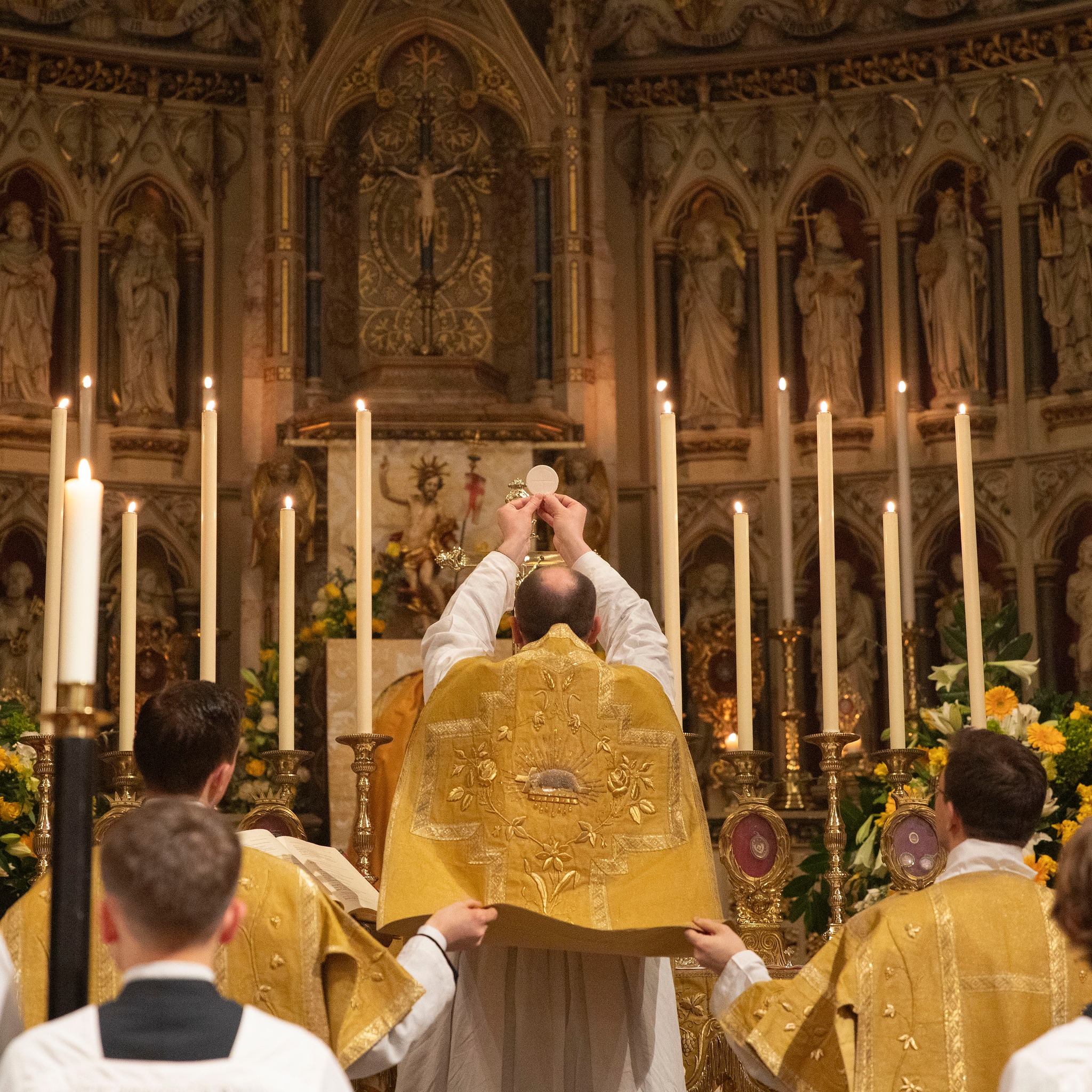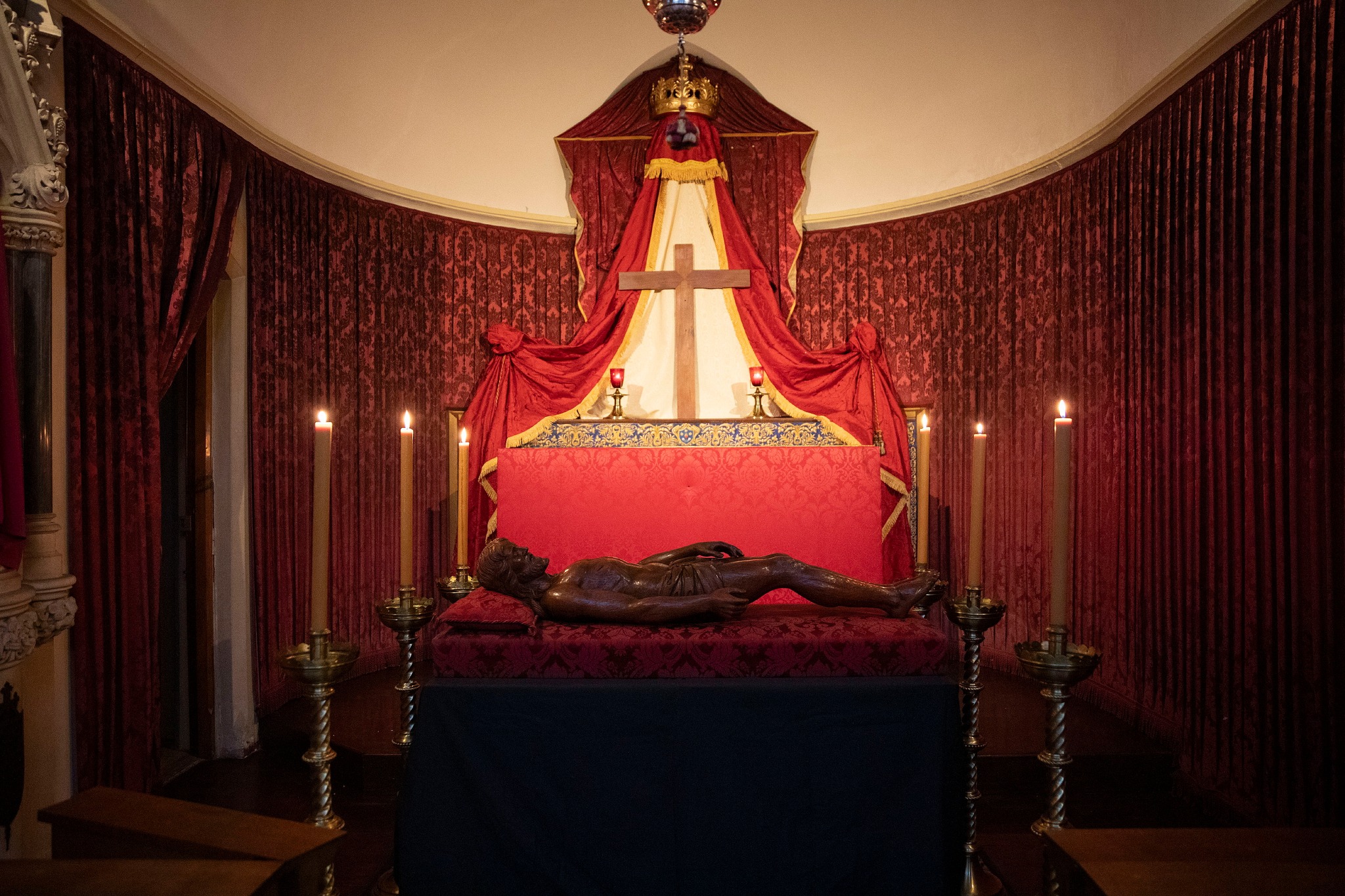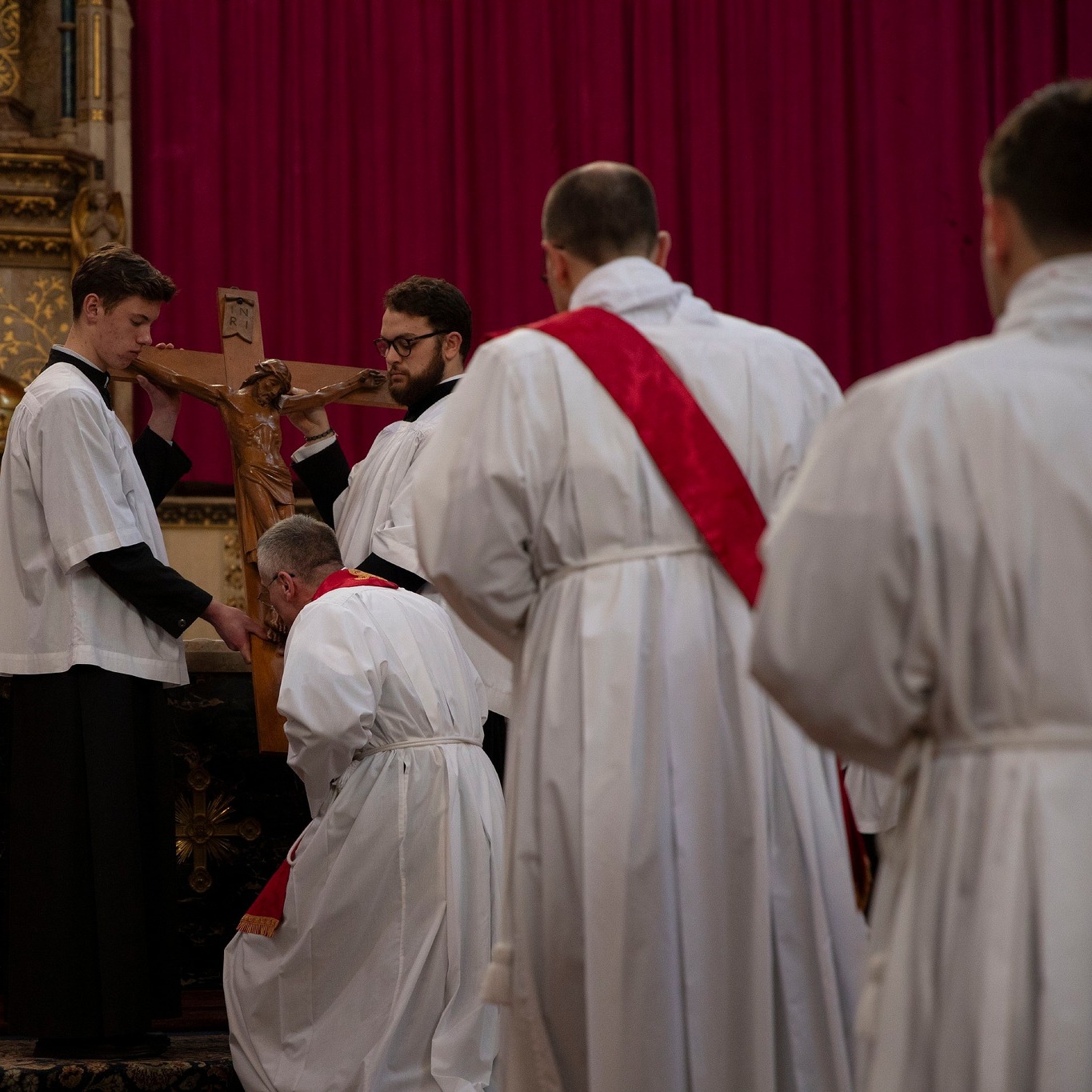Favourite resurrection stories
The Gospel writers include a mix of events that took place after Christ’s resurrection. The accounts of what exactly happened when the tomb was first found empty all capture the same events from a different angle — whether that is of the women who found the tomb empty, of Mary Magdalene, or of the apostles. It may be that each Gospel writer wanted to include something that the others had not. Or that there are significant spiritual truths being conveyed in these different emphases. Or, perhaps, that each writer simply included his own favourite accounts of what happened next.
St John more or less says this himself when he seems to conclude his Gospel with the words: “there are also many other things which Jesus did; were every one of them to be written, I suppose that the world itself could not contain the books that would be written.” (John 21:25) Christ continued to appear to his disciples for forty days — we only have partial accounts of four of these days in the Gospels. There probably was too much to write down. But then John goes on to write another chapter, where he includes just one more resurrection appearance that he couldn’t leave out. Perhaps this was his favourite story — we can certainly understand if it was.
Seven of the disciples, including Peter and John, go fishing. They work all night and catch nothing. Then a mysterious figure appears on the shore and tells them to try again on the right side of the boat and they’ll catch something. And they find more fish than they can haul in.
They’ve been here before, of course. Jesus did this when he first met them (Luke 5). And it makes John realise: “It is the Lord!”
When they get to land, they find Jesus waiting with a charcoal fire with bread and fish ready, and he invites them to bring some of the fish they have just caught and join him for breakfast.
There are many important things that take place here, like Peter’s reconciliation, and Our Lord’s prophecies of what will happen to Peter and John. There is a powerful image of the Church in the net full of fish that does not break. But what I find most interesting are the questions this passage raises in passing without any attempt at answering them.
For a start, where did Jesus get his bread and fish and fire from? When the disciples come ashore, it’s clear that there is plenty of bread and fish on a fire already, and the disciples add to that fish. Jesus has a “here’s one I made earlier” moment. But did he? Did he say: I’m God, so let there be a fire, let there be bread and fish, and there were? Did he command his angels to light a fire and provide these things? Or — and this is the option I like best — did he do it himself? No one says that we can’t take pleasure in fishing or lighting fires once we’ve risen from the dead.
As much fun as it is to picture the angels busying themselves with fishing rods and kindling, I suspect that’s not what happened. We can’t be sure of course. Each option is possible. But that still tells us something. It tells us that it is possible that Our Lord, risen from the dead, could have chosen to do these things for himself, if he wanted to. We know he continued to interact with the physical world — as we see when he eats breakfast. There is something quite moving in the idea that all those everyday tasks that go with being human are not beneath the risen Lord, and that he might even have done them by choice.
It takes John only a few sentences to describe the disciples’ work and journey back to shore. It won’t have been instantaneous. Jesus was waiting on the shore for a long time. What was he doing during that time? He wasn’t teaching anyone. He wasn’t healing anyone. He wasn’t sleeping.
Was he praying? Maybe. Earlier in the Gospels, whenever he has time to himself, he uses it for prayer, to be alone with his heavenly Father. But those intense periods of prayer he set aside before were for working out the details of his mission. Now that his mission is more or less complete, I don’t think he needed to pray in quite the same way. So what is he doing?
Perhaps he just sat there, enjoying the sun rise across the lake and lighting up the hills on the other side. (I’ve never been to the Holy Land, but a quick image search suggests it’s a stunning view.) And so I like to think that Our Lord simply took pleasure in the beauty of the world he created. He looked at it all and saw that it was good, as he had done once before. And he did so, sitting on the beach, next to a fire, listening to the sound of the waves, and waiting for his friends to join him.
Christ is risen from the dead, but he hasn’t lost any of his humanity that he shares with us. We look forward to sharing in the joys of heaven with him one day. But he already takes pleasure in sharing our joys now.
These reflections are sent out each Wednesday to all those on our mailing list. Click here to sign up to our mailing list, and receive our Sunday E-newsletter and these reflections straight to your inbox.
“Always go forward; never look back.”
The Franciscan missionary, St Juniper Serra, the “man who founded California”, was known to say “Always go forward; never look back.” While it is undoubtedly a good piece of advice for those embarking on the missionary enterprise, it should suffice for us too, who are living the life of faith in Christ. We too are on a journey, and the greatest enemy to our progress is a tendency to turn back to what was, to look to our past, and most especially, our sins.
We should never look at any sin in our past life — especially since it has been confessed and forgiven — except in a way that leads us to give thanks and praise to God, “whose mercy endures forever!” St Augustine, and later St Thérèse, held that Grace is everything. We have so much for which to give thanks to God, so much for which, like our Lady, to “magnify him”. This means, to make much of him. This is what the Saints do: they give thanks to the Lord for his mercy and grace, without looking back, propelled onward by joy. If you look back at your past and are depressed by what you see, do what St Paul did. First, he acknowledged “I was a blasphemer”, but he didn’t dwell on that. He didn’t say how unworthy he was to be a follower of Christ, let alone an apostle. In fact he says: “I thank Christ Jesus our Lord who has enabled me, for he counted me faithful, appointing me to his service.” (I Tim. 1:12) When St Paul looked at his past and saw his sin he did not hide away saying, “Woe is me, I’ve done such terrible things, I’m unfit to be a Christian.” Not at all. The effect was to cause Paul to give praise to God. He gloried in Christ’s grace saying, “and the grace of our Lord abounded exceedingly with faith and love which is in Christ Jesus.” (1 Tim. 1:14) This is something, an attitude, we can copy. If we look at our past and feel depressed, it means that Satan has scored a victory over us, causing us to doubt God’s mercy, and therefore his love, and to focus on ourselves, which is never a good idea. By all means be sorry but don’t be sad, since Grace was more abundant. Padre Pio once reminded a penitent that “God’s mercy is infinitely greater than your malice.”
We are still celebrating the Lord’s triumph over sin and death in his glorious Resurrection, which, because we have been called to share in that Risen Life, gives us real joy. The past then is dead, and through the grace of Baptism, we are now one with Christ, our sins having been blotted out once and forever. He walks with us, guiding and leading us on the way, which is why we should heed St Juniper’s words: “Always go forward; never look back.”
These reflections are sent out each Wednesday to all those on our mailing list. Click here to sign up to our mailing list, and receive our Sunday E-newsletter and these reflections straight to your inbox.
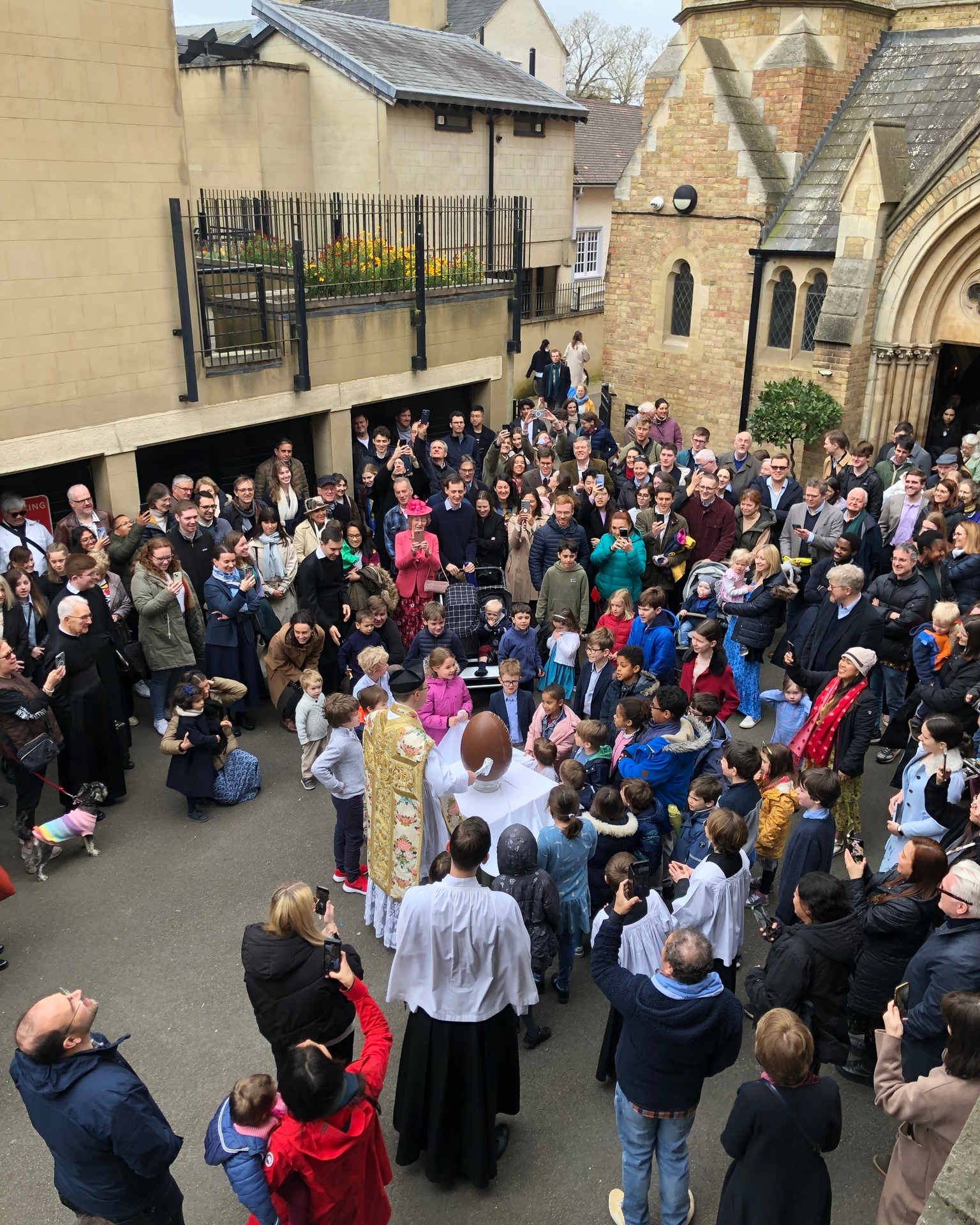
Great crowds joined us for the smashing of the Easter egg after the 9:30 Mass on Easter Sunday.
#oxfordoratory
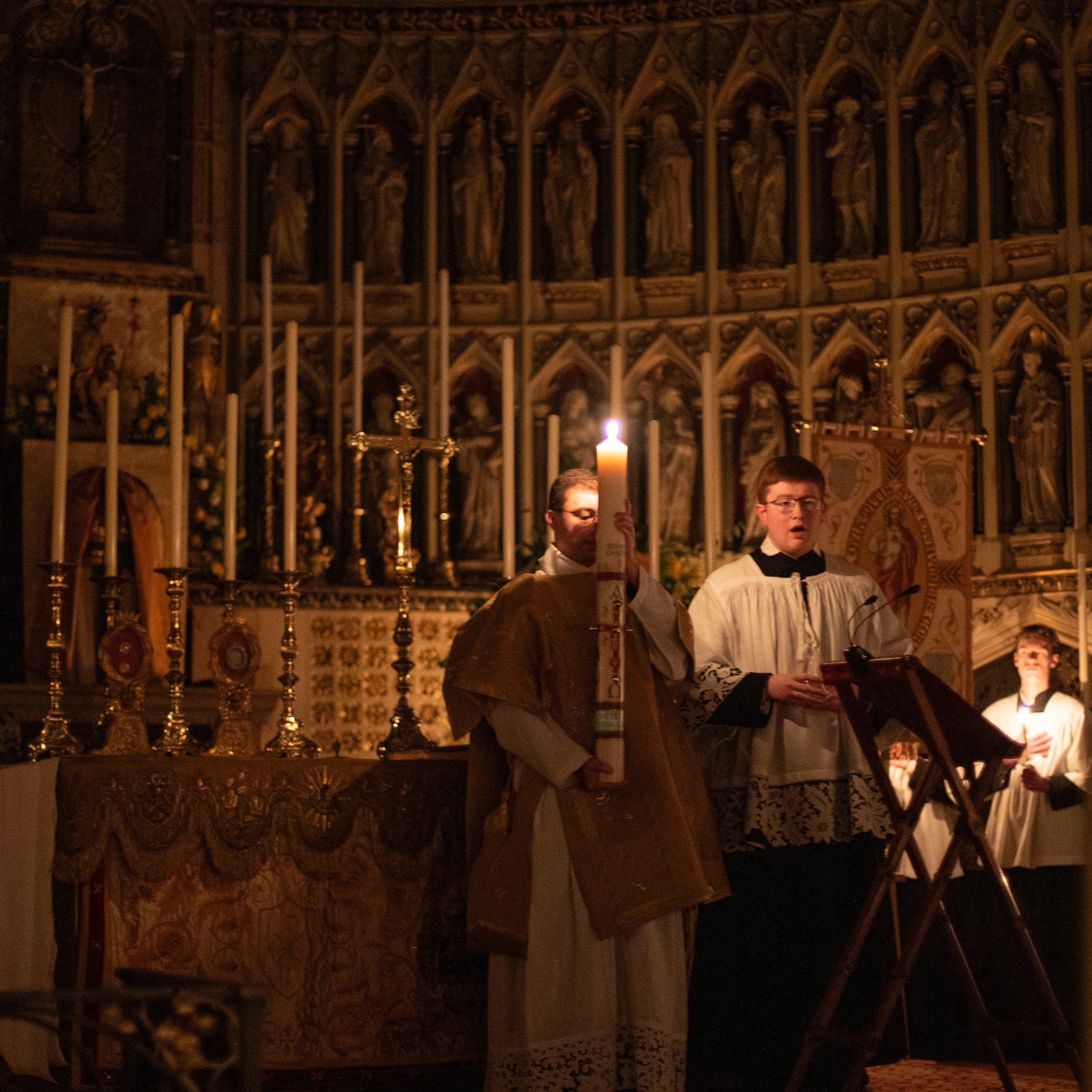
“Rejoice, let Mother Church also rejoice, arrayed with the lightning of his glory, let this holy building shake with joy, filled with the mighty voices of the peoples.”
#oxfordoratory
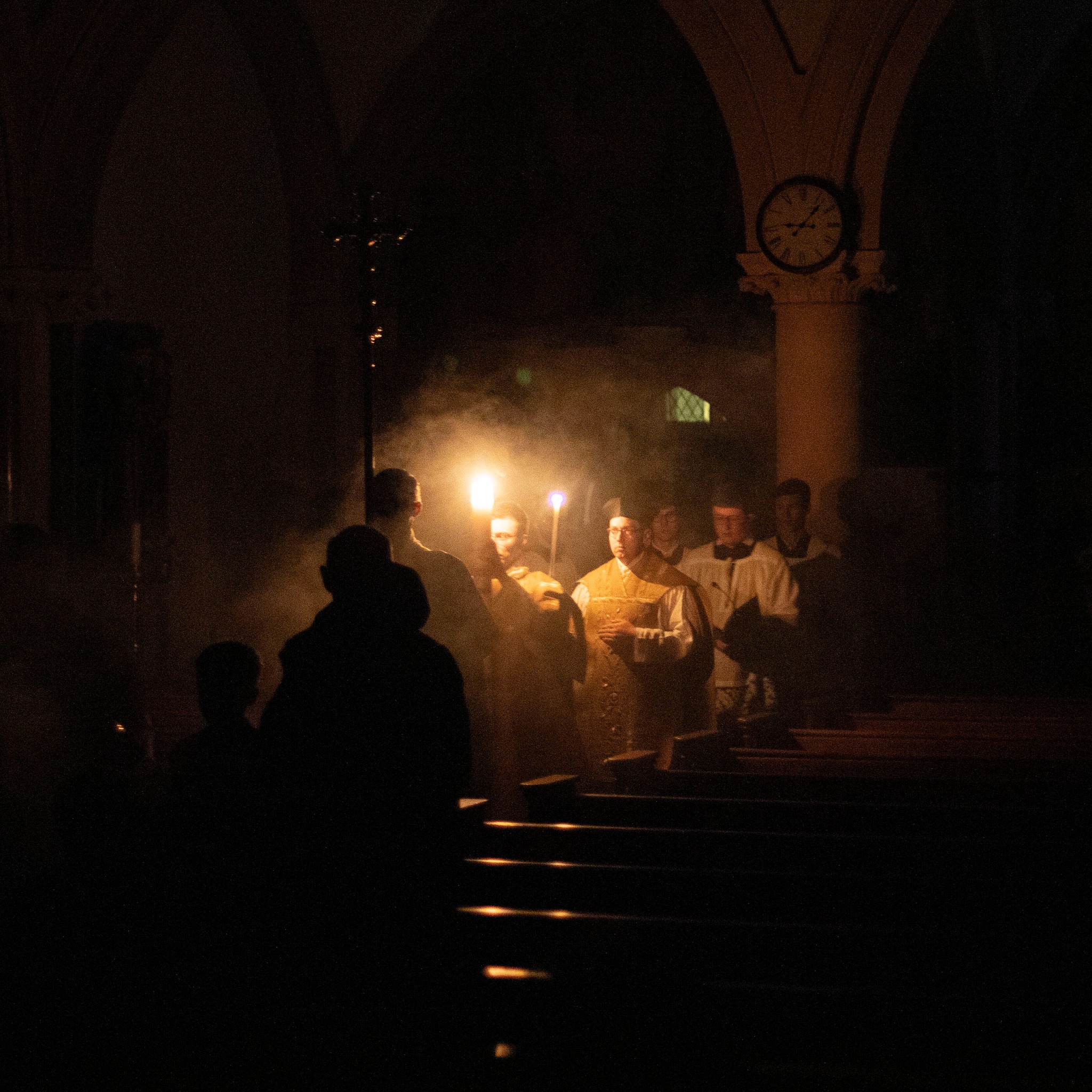
“Be glad, let earth be glad, as glory floods her, ablaze with light from her eternal King, let all corners of the earth be glad, knowing an end to gloom and darkness.”
#oxfordoratory
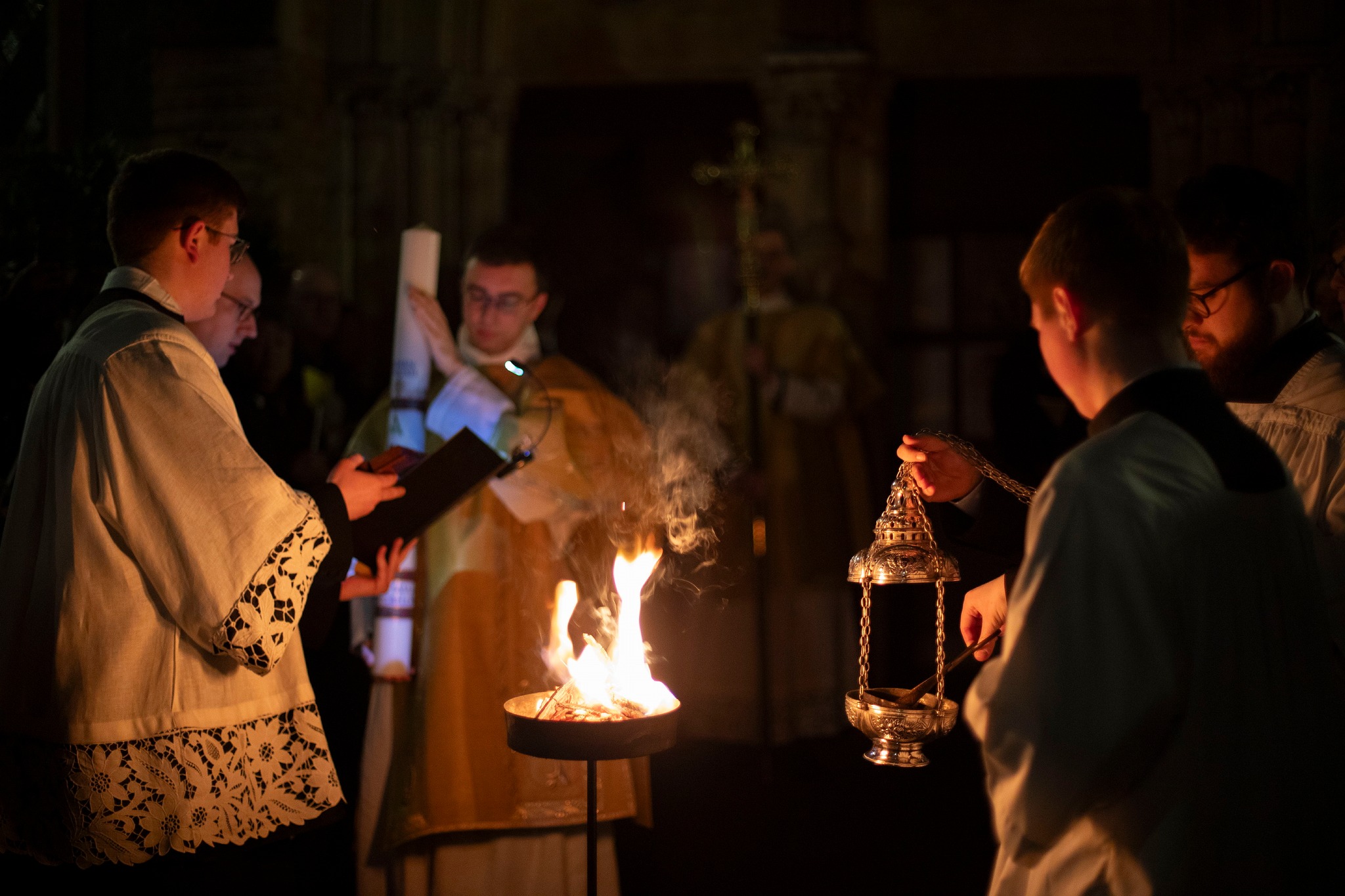
The Easter Vigil begins with the blessing of the fire and the Paschal Candle. The charcoal for the incense is taken from the fire.
#oxfordoratory
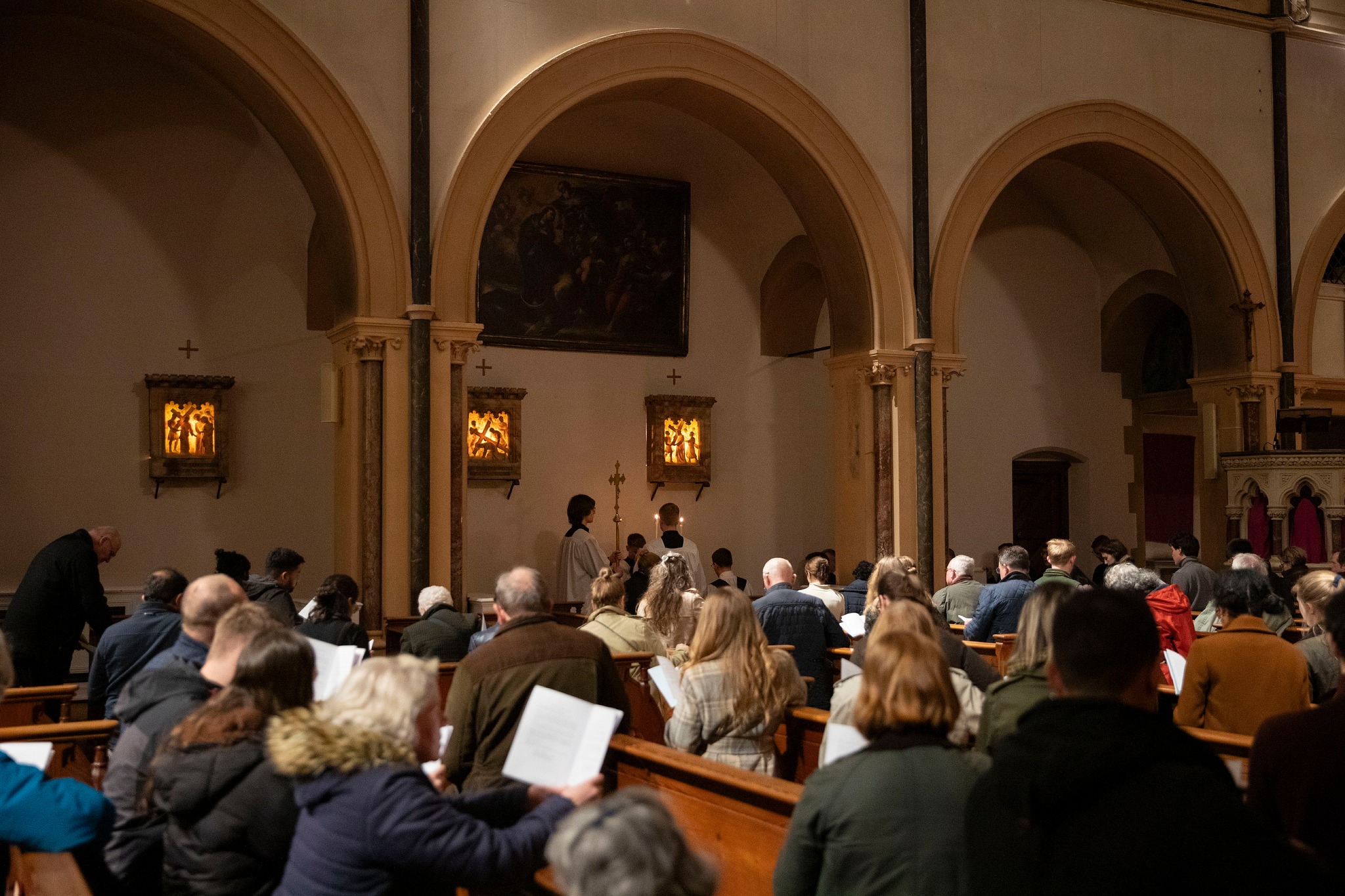
We, too, O God, will descend into the grave whenever it shall please thee, as it please thee, and wheresoever it shall please thee. Let thy just decrees be fulfilled; let our sinful bodies return to their parent dust, but do thou, in thy great mercy, receive our immortal souls, and when our bodies have risen again, place them likewise in thy kingdom that we may love and bless thee for ever and ever. Amen.
Good Friday concludes with the Stations of the Cross.
#oxfordoratory
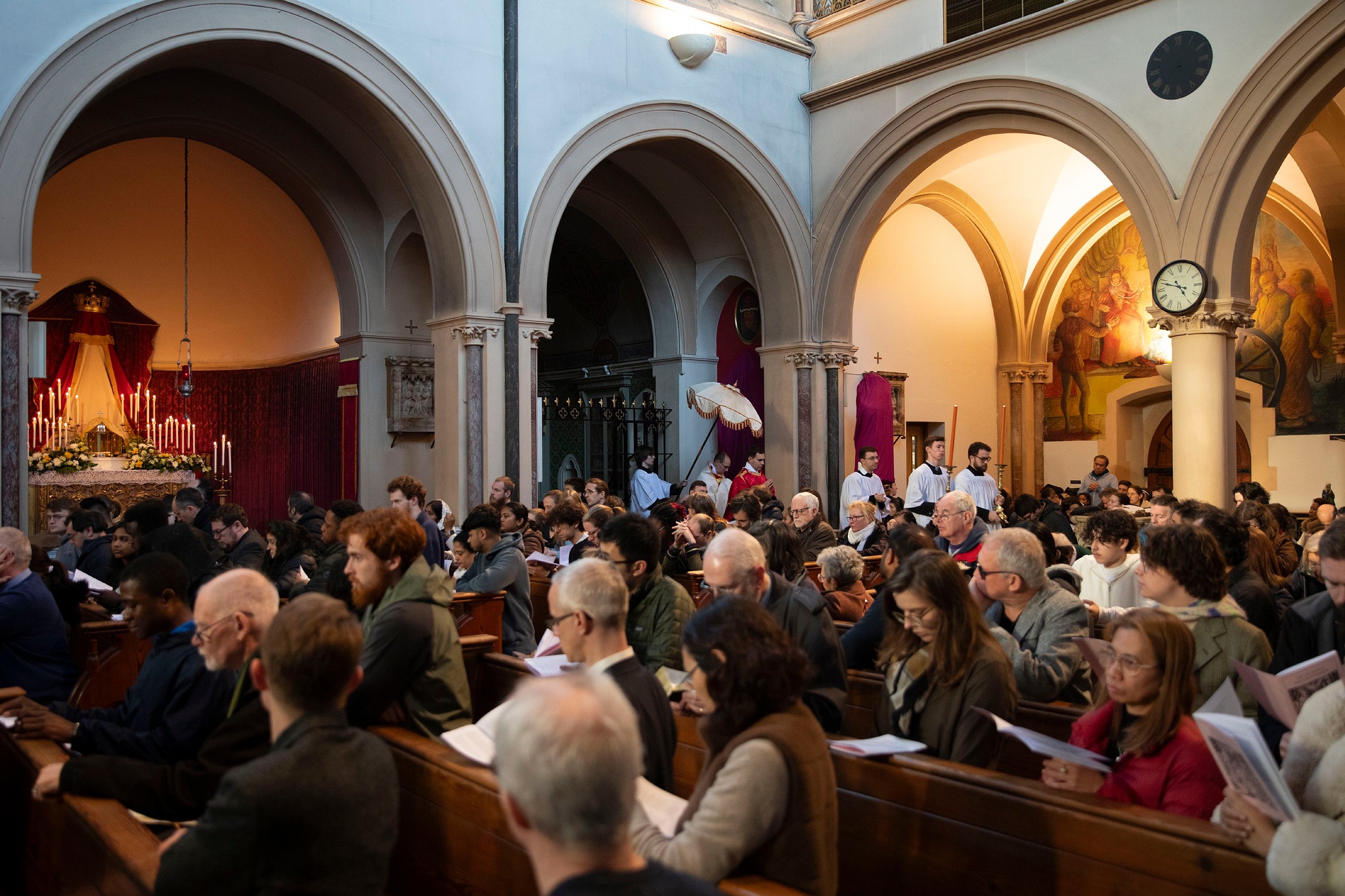
“Faithful Cross! above all other, One and only noble Tree!
None in foliage, none in blossom, None in fruit thy peer may be!”
The procession with the fruit of the Holy Cross — Christ‘s Body — on Good Friday. #oxfordoratory
Go back to Jerusalem
The gospel readings at Mass during the Easter Octave give us the Resurrection appearances of Christ after Easter: to the two women, to Mary Magdalene, to the Eleven apostles, to the two disciples on the Road to Emmaus. Each is given to prove that he is truly risen, truly alive — he talks with them, eats with them, allows them to touch him. Each one also tells us how the encounter with the Risen Lord changed people and transformed his disciples. And each account shows us something about what the resurrection of the Lord should bring about in us too.
This is seen especially in today’s Gospel, the Disciples on the Road to Emmaus. The two disciples were burdened by sadness and a loss of hope. We are told that their faces were downcast. In talking to the stranger, the Lord Jesus they were not able to recognise, they used the past tense: ‘We had hoped’. We had hoped that Christ would be like this, that he would do that, that God would act in this way. But now Christ was dead and their hopes were dashed. They were walking away from Jerusalem, the city of death and darkness, as they had come to experience it. But in reality, Jerusalem was the city where life had triumphed over death, light over dark, and it would be the city where the risen Lord would pour out his Holy Spirit upon the disciples. Jerusalem would be the city from which the Gospel would begin to be preached to the whole world.
The Lord walked and talked with them, even though they were heading in the wrong direction. He did so to help them to see that there was more to Jerusalem and more to the story of Jesus than they had ever realised. His presence with them transformed their sorrow into joy and their despair into hope and, as a result, they turned around and went back to Jerusalem. There they shared their encounter with the Lord with the other disciples and heard from them the story of theirs. And that was when the story of the Church begins.
We often find ourselves going in the wrong direction, away from Jesus and away from his Church, burdened by sadness and hopelessness, dejection, frustration and disappointment. But the Lord always walks with us as he walked with Cleopas and his friend. He is always with us, inviting us to share the story of our own lives with him — our fears, hopes, anxieties and needs. If we share that story with him, with everything that is in it, and everything that we think and feel, and spend time talking to him and listening to him, then he will show us what our story really is. He will point out to us where he is in that story, and what is its true meaning. If we open our hearts to his presence, he will reveal himself to us. And we will be transformed as the two disciples on the road to Emmaus were transformed. Our sadness will turn to joy, our despair to hope, and we will begin to face again in the right direction. We will go back to Jerusalem, recognising that the places we try to get away from because we see them as places of darkness and sorrow are the very places where the seeds of new life are to be found. Those are the places where God is mysteriously but powerfully at work.
These reflections are sent out each Wednesday to all those on our mailing list. Click here to sign up to our mailing list, and receive our Sunday E-newsletter and these reflections straight to your inbox.
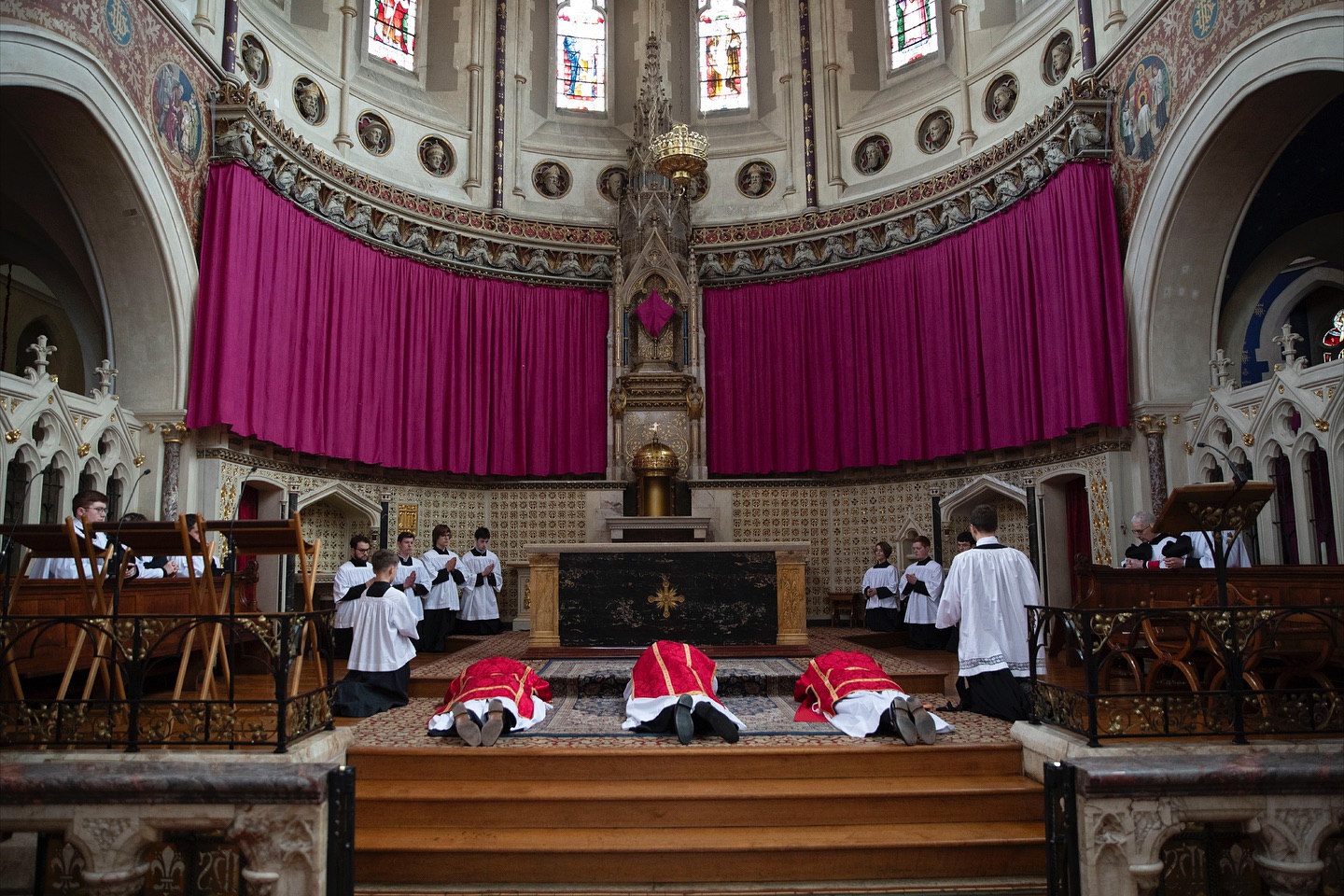
Words cannot express our sorrow, so we prostrate ourselves on the floor as we begin the Solemn Liturgy of the Lord’s Passion on Good Friday.
#oxfordoratory
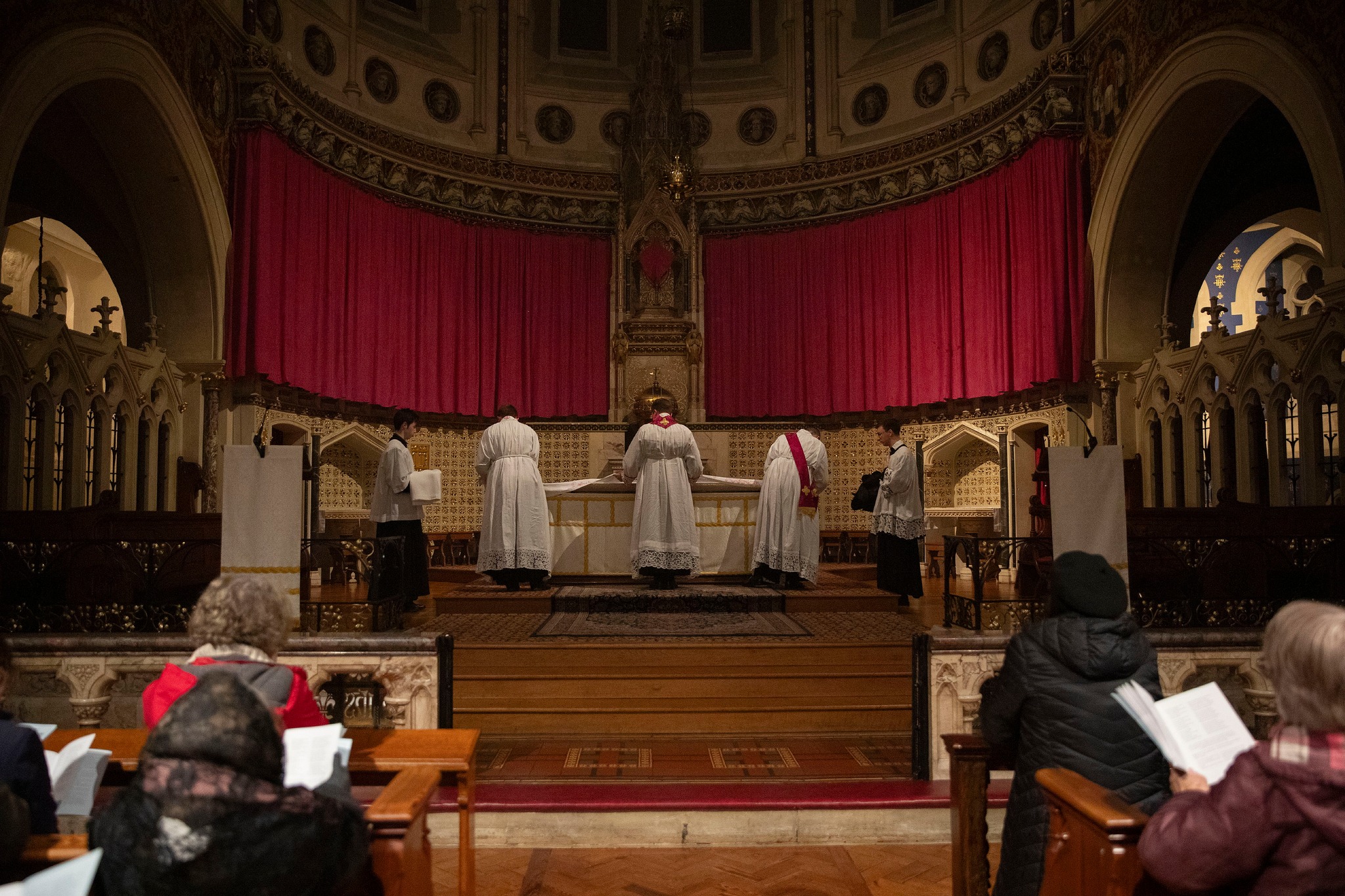
Meanwhile the other altars of the church are stripped bare, preparing us for Good Friday, and reminding us of Christ being stripped and flogged by the Roman soldiers.
#oxfordoratory
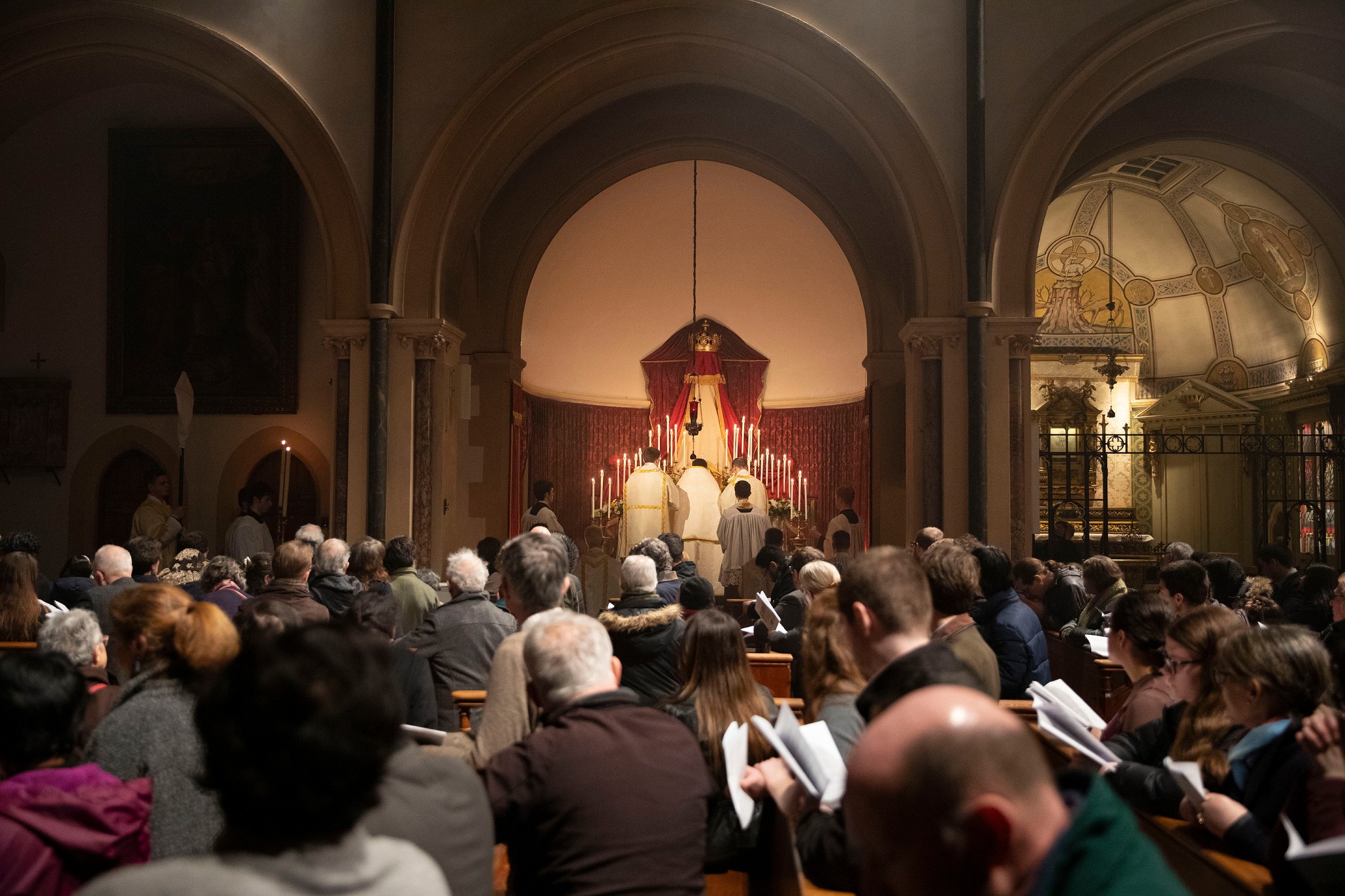
The Altar of Repose gives us a chance to watch with Christ on the eve of his Passion.
#oxfordoratory
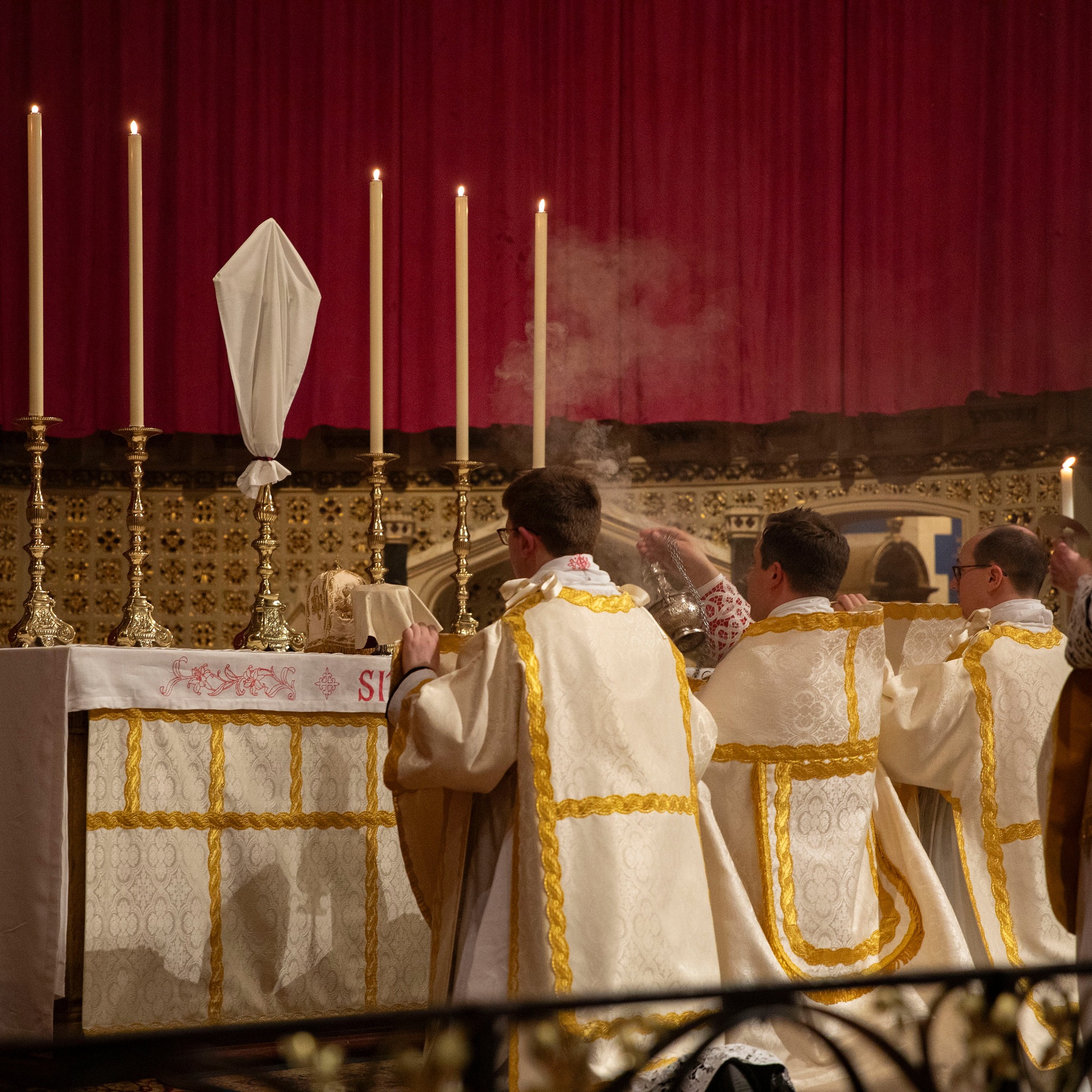
The Blessed Sacrament is incensed at the end of Mass on Maundy Thursday, before being carried in procession to the Altar of Repose.
#oxfordoratory
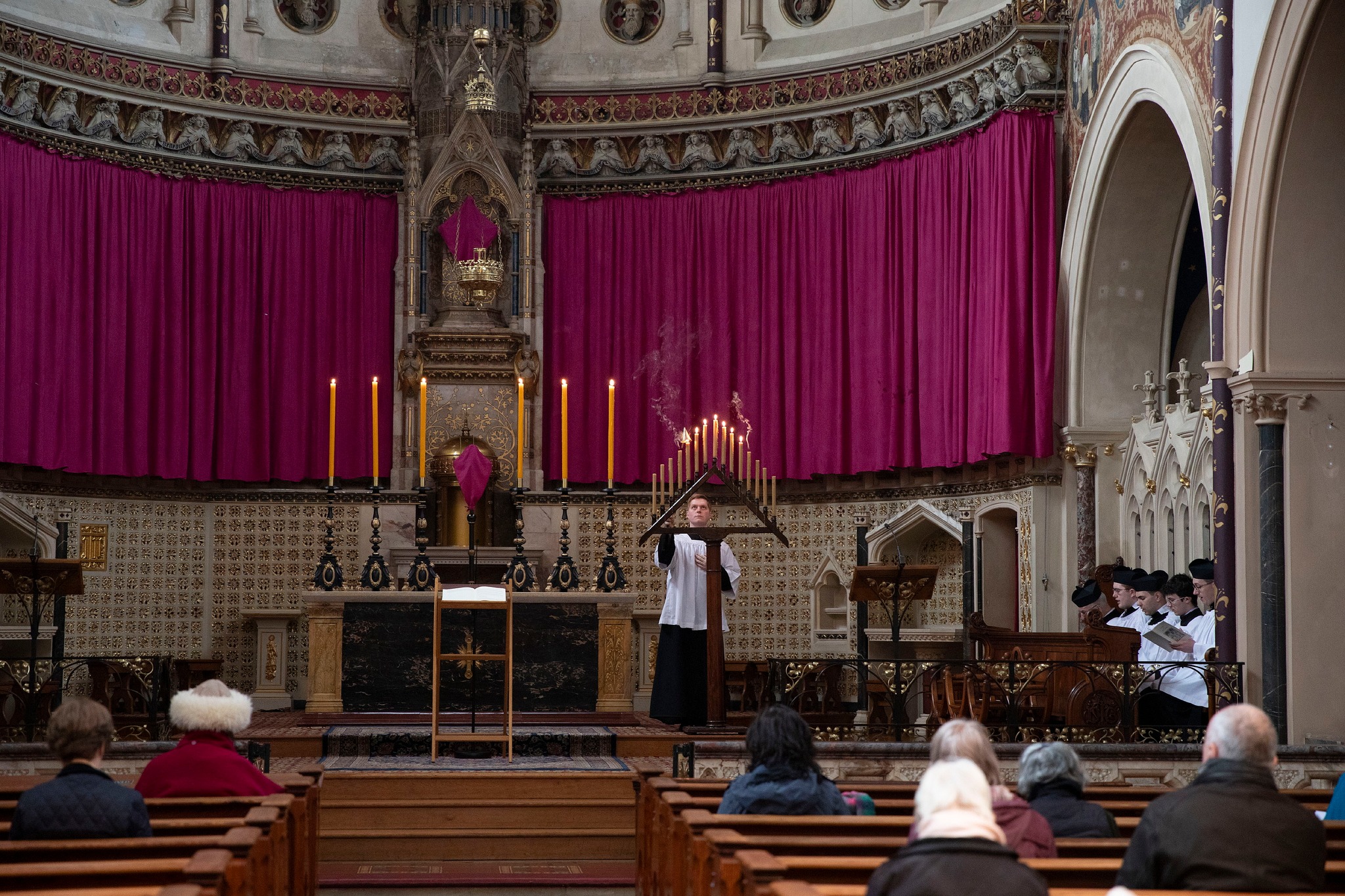
During the Sacred Triduum, the Divine Office is sung in a special form. The psalms and readings that make up the offices of Matins and Lauds are sung in a darkened church, lit only by the light of the altar candles and tenebrae hearse. After each psalm, the candles are gradually extinguished until the church is left in darkness — in Latin, ‘tenebrae’.
#oxfordoratory


